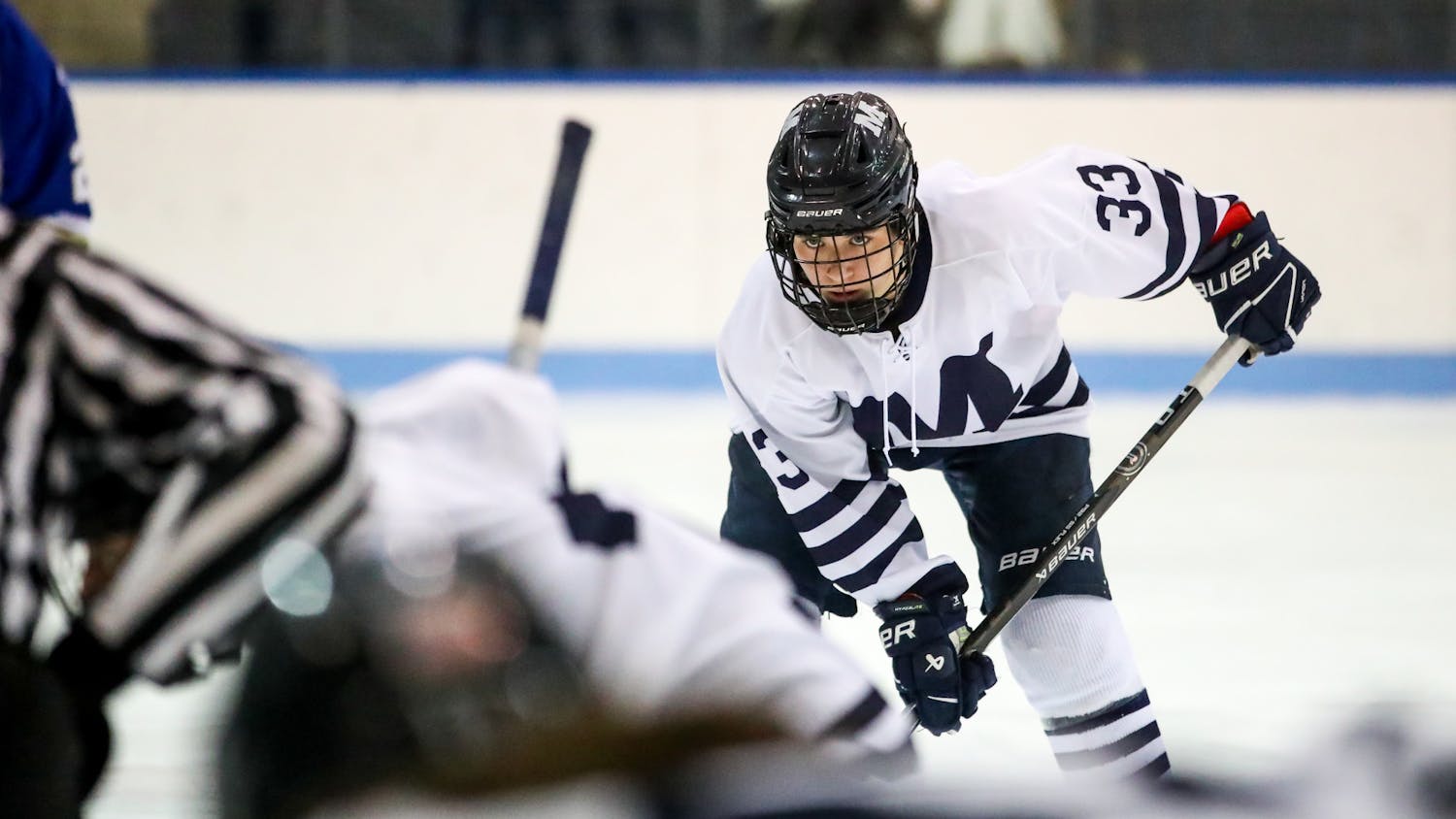Several days had passed since the suspension of the 2019-2020 NBA season. I popped open Twitter and encountered a video on my homepage: marble racing. “Day four without sports: Marble1 racing is intense!” said the caption. I played the video, and focused my attention on a stream of miniature, colorful orbs dashing through a racetrack engraved in sand. “Damn,” I thought to myself. “This shutdown is really going to suck.”
Like in sports, the outcome of the marble race was uncertain. For some people, that might be exciting enough to provide a thrill, especially when money is at stake. But I’m sure most of us would prefer to spectate a sporting event, especially when we’re so starved for entertainment. Certainly, we can binge watch movies or television shows, but sports carry an unscripted-ness that makes them special. Beyond simply portraying entertaining levels of athletic ability or following the rules of the game in question, the best sports moments capture cathartic human experiences.
When Tiger Woods won the 2019 Masters Tournament almost exactly a year ago, the event’s overarching narrative revolved around the idea of redemption. Tiger’s early success as an indomitable superstar on track to becoming the greatest golfer ever was soon eclipsed by extramarital affairs and injury. Set against the backdrop of a sinuous path to redemption, his re-emergence as a champion appealed to a broad audience, sports and non-sports fans alike. After sealing victory with a bogey putt on the 18th, an older, balding Tiger iconically ventured into the crowd and embraced his son and daughter. For viewers, the scene was touching: life’s difficulties clearly humbled the once-arrogant prodigy, and his 10- and 12-year old son and daughter, accustomed to seeing him struggle for the past decade, finally watched him succeed in golf’s most prestigious tournament.
Often, sports storylines resonate with us on even more extreme levels.
Whenever the fast, hard-hitting southpaw from the Philippines, Manny Pacquiao, entered the boxing ring against a major opponent during the peak of his career in the late 2000s, my Filipino-American family (along with 10 to 20 of our closest friends), would pause our activities for the day, gather around a television and focus our attention on that night’s matchup. Such gatherings happened all throughout the Philippines. In fact, it was expected for crime rates to drop to zero percent whenever he fought. Pacquaio, considered one of the greatest boxers of all time, won our imaginations because of his story; before all the titles and his $220 million in net worth, Pacquaio was born in a village in Mindanao, a southern Philippine island crippled by poverty and religious conflict. The “Pac-man” reportedly never saw a TV until he was 10, lived in a single-room shack with his parents, sister and two brothers and could barely afford rice, according to an article by Post Magazine. “Pacquiao and his family were poor by the wretched standards of other villagers in Tango,” said the same article.
Whenever I witnessed Pacquaio throw, dodge and absorb punches on HBO pay-per-view, I saw the same qualities many Filipinos needed to overcome the extreme poverty of their homeland: nerve, tenacity and grit. Opponents were typically taller than Pacquaio, who stood at five feet and five inches. Such imbalances were emblematic of the improbable odds he faced in order to reach his current fame and position. Viewers found Pacquaio so inspiring that the boxer’s popularity even won him a Senate seat in the Philippines.
As a result of Covid-19-induced cancellations, however, that unique ability of sports’ to unite, excite and inspire, is now halted.
Don’t get me wrong: the United States and the world are rightfully focusing on the utmost important issue of saving lives, controlling the spread of Covid-19 and curbing the economic costs of shutdowns. The suspension of sports is and should be a tertiary, even quaternary issue. But that’s not to say a tangible cost isn’t being incurred by cancelling sports. Sure, replays exist, but currently, we can’t marvel in real-time as athletes engage in physically, emotionally and psychologically taxing endeavors. We can’t watch as they apply years of highly focused training and, in some contests, operate with little room for error. We can’t draw upon developing storylines that reflect challenges from our own lives, or offer instances of what we didn’t know was possible. We are deprived of sports’ ability to draw communities together, and at a time when, in our respective self-isolated situations, we need it more than ever.
And so I, along with countless other fans, am eagerly anticipating the moment when sports seasons resume. Until then, we ought to draw on the lessons we’ve learned from sports storylines in the past. Some of us who haven’t taken social distancing seriously can turn around our performances today. We can also foster toughness and hope in the face of adversity. Currently, the entire world has entered a match against an invisible and microscopic opponent. To succeed, we ought to act like team players.
Miguel Espinosa ’20 is The Campus’ senior sports editor.
Notes from the desk: On a world without sports

Comments


